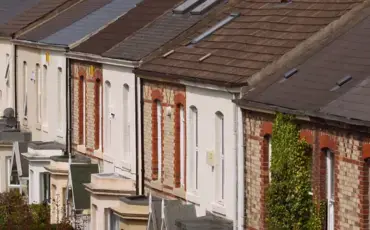
THE GROUND RENT ‘CATCH’
Ground rent is a contractual rental payment allowing for the occupation of an area of land/property and usually only applicable to leasehold properties.
The leasehold system dates back to the days of William the Conqueror due to his claim that all land was under his ownership. Estates were bequeathed to wealthy land owning lords who were then able to charge people living on their land. This illustrates the early formation of the lease. The leasehold system has evolved over time allowing for the owners of a freehold title to charge ground rent to those who occupy their land/property.
Flats/apartments cannot be sold with freehold title as they are constructed on top of each other so occupying the same area of land. Therefore, the freeholder attaches a ground rent to each flat/apartment. Ground rent can be a peppercorn (a ground rent of nominal value that will never be collected or is collected upon demand only). On some occasions the ground rent is for a monetary value specified within a lease or transfer document. Failure to pay ground rent would be considered a breach of contract, and a freeholder could potentially reclaim their land.
Over the last decade or so, developers have started to sell homes on a leasehold basis rather than freehold. As the developer owns the land under the freehold title, the buyer must pay an annual ground rent in accordance with the lease they have entered into. It has come to light that the buyers have not fully understood the contracts they were entering into. In some instances, the developers have then sold the freehold title to offshore investors, who have then, unscrupulously, demanded vast sums from the homeowners to buy out the contracts.
Following this, further issues have ensured in that many families across the UK are not able to sell their homes due to the onerous ground rent charge provisions contained within the lease they have entered into.
Historically speaking, ground rents have been on the low side i.e. between £10-£50. However, developers have increased ground rents to a charge of anywhere between £150 to £500 a year. Lease clauses have been incorporated to allow for the freeholder to review the ground rent periodically so that they may increase the ground rent at each review. The reviews may take place every 5, 10, or 25 years.
A ground rent doubling every 10 years does not seem to be problematic on the face of it, but some leases are for a term of 999 years. If in consideration of a 999 year term lease, a ground rent of £250 per annum doubling every 10 years, the ground rent payable could potentially be in the thousands!
Lenders are, in some cases, refusing to offer borrowing on such properties due to the onerous ground rent provisions. In the event that a new buyer will still want to purchase a property affected by the ground rent provisions, they are unlikely to be able to obtain a mortgage. This in effect down-values the properties due to not being an ‘attractive prospect’.
Those who find themselves owning such properties may wish to attempt to purchase the freehold, or, as an alternative, seek to amend the ground rent provisions to cap the ground rent to a reasonable level (£250.00 per annum for properties outside of London, and £1,000.00 per annum for those properties in London) to prevent the leases becoming assured tenancies which will give the freeholder greater powers to take possession of the property and bring the lease to an end if ground rent remains unpaid.

Share this article





















